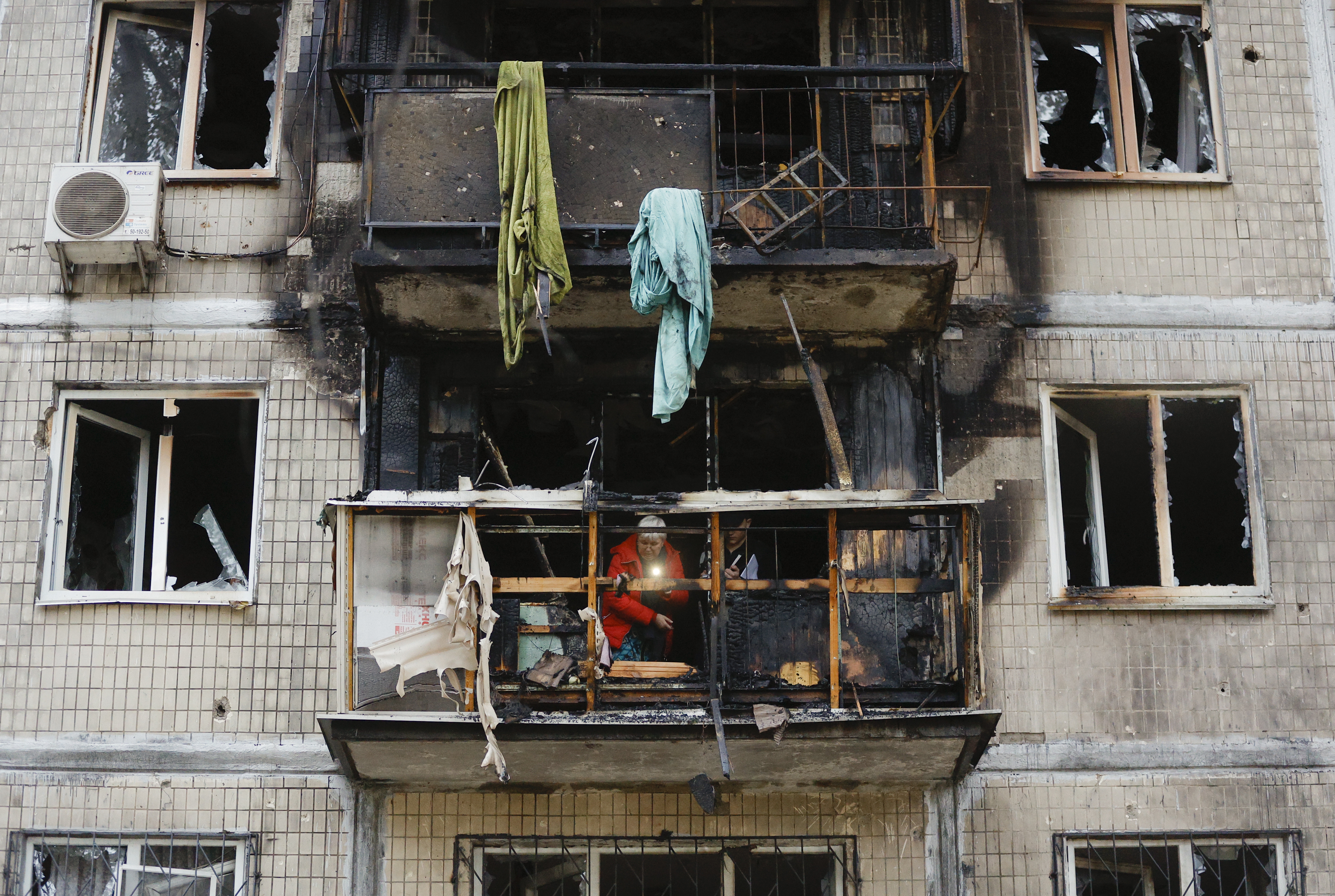Ukraine, annexed by force to the Soviet Union in 1921, was stripped of independence. Ten years later it endured an artificially created famine, killing millions of Ukrainian women, men and children through deliberate decisions made in Moscow, what is called Holodomor.
The Union of Soviet Socialist Republics (USSR) – which included Ukraine – paid the heaviest tribute during World War 2. Twenty-six million people, both military and civilians, died on the side of the Soviet Union, including from Ukraine, which lost almost seven million people, an enormous proportion of its population. Hence, a particular sensitivity to the issue of war applies not only to Russia, but also to Ukraine.
Read more: War in Ukraine
In the aftermath of World War 2, many current European Union member states were forcefully occupied by the Soviet Union until the fall of the Berlin Wall and the restoration of the independence of these states. Europe faced the monumental challenge of rebuilding its shattered landscapes and political structures. The European security architecture established in 1945 has been pivotal in fostering decades of relative peace and stability. In fact, European nations were planning their future on the premise of peace.
When the reunification of Germany occurred in 1990, the North Atlantic Treaty Organisation – Nato – never committed to not accepting Ukraine as a member. Countries that had previously been dominated by Moscow, and another military alliance, the Warsaw Pact, learning from experience, chose to join both Nato and the European Union.
There was never a promise made not to bring in new sovereign countries as members. Claiming that is pure disinformation and used by Russia to find a justification for its aggression.
Ukraine’s closening of ties with Nato is not new: it dates back to 1991, when the newly independent Ukraine voluntarily joined the North Atlantic Cooperation Council and in 1994 the Partnership for Peace programme. And indeed, at the Bucharest Summit, Nato leaders stated that Ukraine would become a member of the alliance, as a clear component of Ukraine’s right to self defence since regaining independence in 1991.
In 2013, Ukraine experienced the “Maidan Revolution”, a pivotal moment in its recent history where thousands of Ukrainian citizens rallied against corruption and pro-Kremlin politicians and called for closer ties with Europe. This popular movement was a testament to Ukraine’s commitment to democracy and sovereignty, reflecting a collective desire for a prosperous future free from external domination.
Similarities to South Africa
Just like in South Africa, people in Ukraine have experience in creating grassroots change and standing up for freedom and democracy. Ukrainians, as a sovereign and independent nation, wanted to exercise their right of self-determination and choose their own path for the future development of their country.
Soon after in 2014, Russia, which has notoriously neglected the right of self-determination of its neighbours in the past and in recent years, illegally annexed the Ukrainian peninsula Crimea, and then destabilised the Ukrainian regions of Luhansk and Donetsk. Various agreements looking for a peaceful settlement followed, but Russia respected none of it.
The presence of Russian speakers in these regions is also often invoked as a justification for the invasion. One should, however, recall that having a region with Russian-speaking inhabitants does not make this region de facto Russian, and that sharing a common language does not mean wanting to adhere to another country, in particular when it is an authoritarian one.
The war indeed started in 2014, with the annexation of Crimea and the harassment of Ukrainian territory in the East. But then, Russia further escalated the situation in early 2022, with a full-scale invasion. In spite of both warnings and pleas, Russia chose to go ahead and brutally attack its sovereign neighbour, starting on 24 February 2022.
The devastation caused by Russia’s continued aggressive war has been tremendous. Millions of Ukrainian civilians have been forced to flee their homes. Schools, hospitals, power stations and bridges have been destroyed by Russian weapons. Civilian casualties count in the tens of thousands, while the military toll counts even higher.
After two-and-a-half years, Russia still bombs Ukrainian territory to murder Ukrainian civilians, as we saw with the 3 September 2024 attack on Poltava with two ballistic missiles, killing dozens of people and injuring more than 200. Such targeted bloodshed proves Russia’s determination to continue with its brutal war against Ukraine and its people.
The Ukrainian people need a comprehensive, just and lasting peace, supported by the international community. We have expressed interest in any peace proposal that is based on the United Nations Charter and fundamental principles of international law. But such a peace cannot be achieved without properly re-establishing the facts on the narrative behind the full-scale, brutal and illegal Russian invasion of Ukraine. DM
This op-ed has been written on the initiative of France and co-signed by the Ambassadors of France, Germany, Poland, Belgium, Austria, Lithuania, Estonia, the Czech Republic, Croatia and Slovakia.
Adam Burakowski, Ambassador of Poland to South Africa
Ante Cicvarić, Ambassador of Croatia to South Africa
Vladimir Grácz, Ambassador of Slovakia to South Africa
Paul Jansen, Ambassador of Belgium to South Africa
Rasa Jankauskaite, Ambassador of Lithuania to South Africa
Romana Königsbrun, Ambassador of Austria to South Africa
David Martinon, Ambassador of France to South Africa
Andreas Peschke, Ambassador of Germany to South Africa
Daniel Schaer, Ambassador of Estonia to South Africa
Tomáš Uličný, Ambassador of the Czech Republic to South Africa




 A woman checks the damage in a flat at the site of an overnight drone attack on a residential area in the Solomyansk district of Kyiv, Ukraine, 30 October 2024. (Phone: EPA-EFE / Sergey Dolzhenko)
A woman checks the damage in a flat at the site of an overnight drone attack on a residential area in the Solomyansk district of Kyiv, Ukraine, 30 October 2024. (Phone: EPA-EFE / Sergey Dolzhenko)